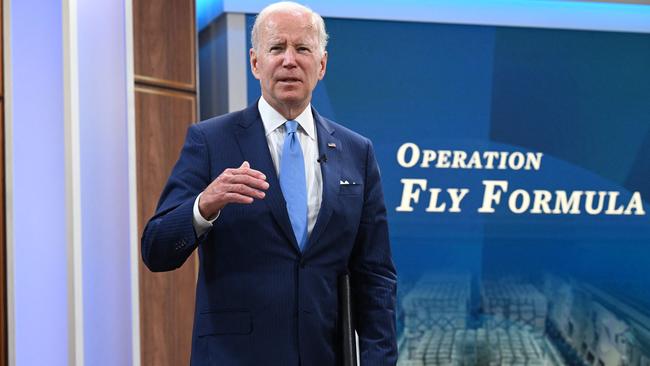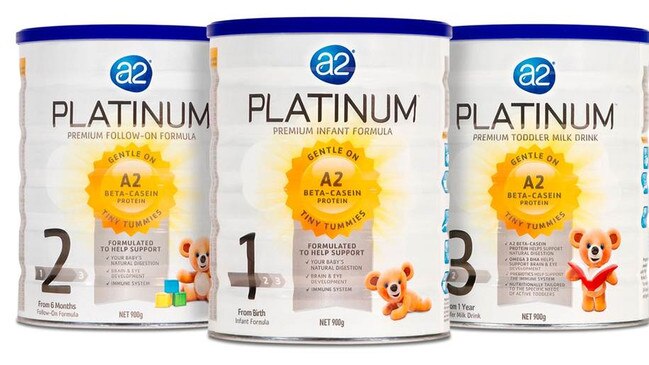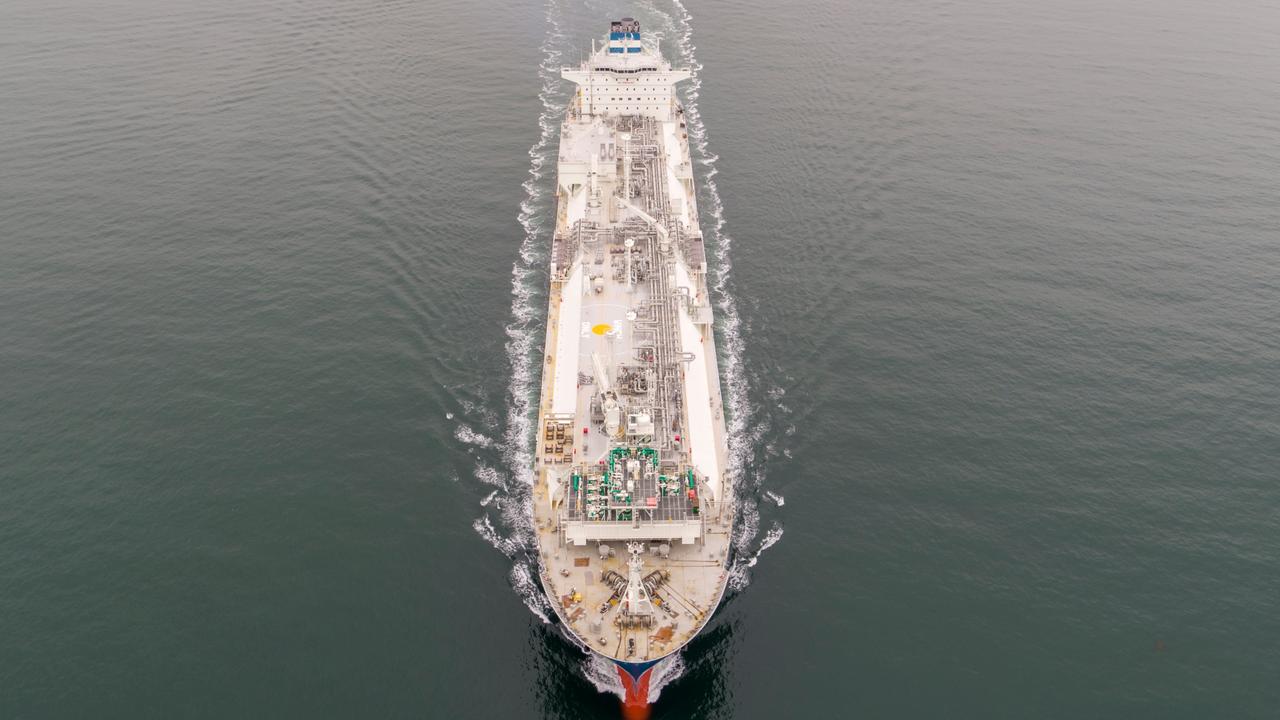FDA halts A2 Milk and Fonterra’s hopes of smashing US infant formula oligopoly
Plans by NZ suppliers to crack the mass US infant formula market and smash a decades-old oligopoly have been halted by yet more approval delays.

America’s Food and Drug Administration has halted A2 Milk and Fonterra’s plans to enter the US infant formula market, and with it hopes of smashing a decades-old oligopoly.
A2 shares tumbled almost 10 per cent on Wednesday to $4.61, with some analysts saying it could dive as low a $4 — a far cry from its $20 peak two years ago.
A2 and Fonterra both applied to the FDA to import infant formula to the US in late May to join President Joe Biden’s Operation Fly Formula to help ease a chronic national shortage. But the agency has now delayed progressing those applications as well as more than 100 others.
Fonterra and A2 hoped to follow smaller rivals Bub’s and Chinese-owned Bellamy’s Organic in entering the US infant formula market and, given their size, splinter the dominance of a handful of multinationals.
But of the nine companies that the FDA has granted temporary approval, known as enforcement discretion, only four are brands that are not registered in the US, and significantly smaller than the market values of A2 and Fonterra.
This has fuelled industry concerns that US authorities are protecting its domestic infant formula industry, which supplies about 98 per cent of its overall market.
The delay in new approvals comes as the FDA launched a review of its food program last month and infant formula remains scarce on retail shelves across America after Abbott Laboratories, which controlled about 40 per cent of the market, shut down its factory on contamination concerns earlier this year, before closing its doors again in June after the site was flooded.
FDA Commissioner Robert Califf has said: “the need to diversify and strengthen the US infant formula supply is more important than ever”.
In a letter sent to companies with pending applications, the FDA said it identified “one or more” issues needing further evaluation, including the “presence of certain ingredients”, environmental monitoring for microbiological contamination and a “lack of inspectional history”.

This is despite infant formula being a highly regulated product in Australia and New Zealand, with strict controls over what ingredients brands can use.
“The FDA has identified those requests for enforcement discretion where the information submitted by the requestor appears to describe practices or information that does not align with the practices and information associated with infant formulas that are currently on the US market,” the agency, which has not granted any new approvals since July 8, wrote.
“Based on FDA’s expertise and experience, we believe these issues would be unlikely to be resolved quickly and, therefore, we are deferring further consideration of your request at this time.”
The FDA did not further specify its concerns.
A2 Milk chief executive David Bortolussi said the company remains “ready to support US parents and caregivers” and has earmarked 1 million cans of formula for the US, the equivalent of 27 million bottles.
Meanwhile Fonterra says it is diverting the stock it set aside for America back to New Zealand to stop it perishing.
“Feedback from our US team on the ground is that the infant milk formula crisis has not been solved with significant retail out of stock issues continuing across the country,” Mr Bortolussi said.
“The A2 Milk Company stands ready to support US parents and caregivers during this critical time with … one of the largest capacities in the industry to provide long term supply.
“In any event, we would not expect that this opportunity over the current FDA enforcement discretion period would have a material impact on the company’s financial results in FY23 due to the market dynamics and cost to serve of the US infant milk formula market”

But Wilsons analyst James Ferrier said the FDA decision was “obviously disappointing” for A2 Milk.
“The FDA’s decision to defer further requests to supply infant formula under the temporary Infant Formula Enforcement Discretion Policy could suggest that the authorities are becoming more comfortable with the supply situation”.
“This is obviously a disappointing outcome for A2 Milk in regards to short-term earnings potential or an opportunity to build brand awareness in the US,” Mr Ferrier wrote in a note to investors.
“It also creates uncertainty for those who have secured temporary market access, in relation to prospects for more permanent market access beyond November, which is the end date of the policy.”
Meanwhile, Macquarie analysts said: “A2 Milk may have missed the boat on the brand exposure and distribution establishment from being stocked during the shortage”.
“Coming into (A2’s delivering its financial result), the market will now be focused on A2M’s progress in gaining share in a competitive China infant formula market, margin profile given cost headwinds, and channel transition away from daigou. We think valuation remains elevated given a challenging market backdrop,” said Macquarie analysts, who have an underperform rating on the company with a $4 share price target.
James McVitty, Fonterra’s manager of trade strategy, sustainability and stakeholder affairs for the Americas said the company had made a submission on “humanitarian grounds” to supply the US with “a relatively small number of infant formula cans” to help ease the country’s shortage.
“However, the International Dairy Foods Association has advised us that the FDA is deferring any further review at this time of all pending applications,” Mr McVitty said.
“We continue to support other infant formula manufacturers approved for sale in the US with base infant formula powder ingredients.”
These approved manufacturers include ASX-listed Bub’s — the market value of which is more than 10 per cent of A2’s — and now Chinese-owned Bellamy’s Organic.
Six months after Abbott initially shut down its factory in Michigan, availability of powdered formula in the US has dropped to its lowest level this year last month, with 30 per cent of products out of stock.



